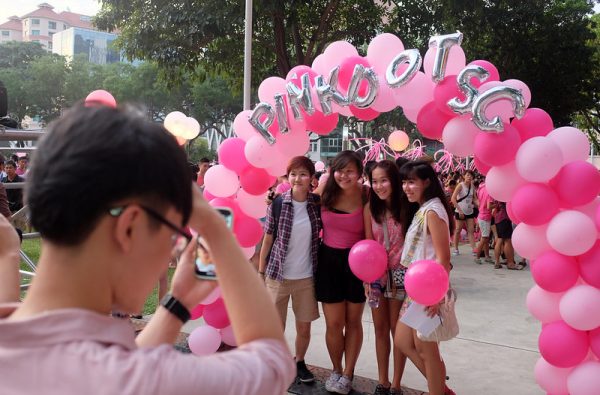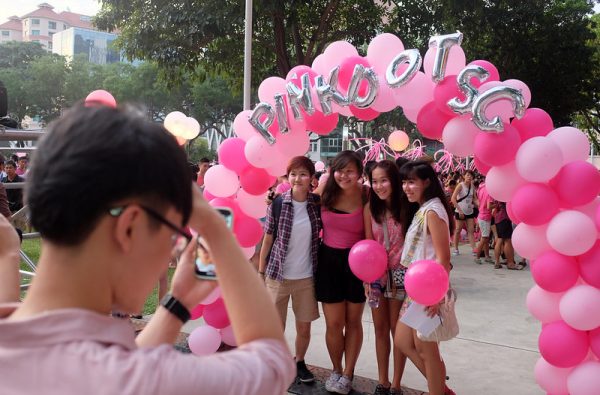

Singapore’s government has told the U.S. Embassy “not to interfere” in local matters after it hosted a webinar with local LGBT advocates earlier this week. The invitation-only webinar, held to mark International Day Against Homophobia, Transphobia, and Biphobia on Monday, was co-hosted by the embassy and the LGBT rights organization Oogachaga.
In a terse statement Wednesday, the Ministry of Foreign Affairs (MFA) “reminded the U.S. Embassy that foreign missions here are not to interfere in our domestic social and political matters, including issues such as how sexual orientation should be dealt with in public policy.” It added, “These are choices for only Singaporeans to debate and decide.”
Founded in 1999, Oogachaga describes itself as “a community-based, non-profit, professional organization working with lesbian, gay, bisexual, transgender, questioning and queer (LGBTQ+) individuals, couples, and families.”
In comments to Channel News Asia, Oogachaga’s executive director Leow Yangfa expressed “surprise” over the MFA statement. He said the group had received no funding from the U.S. government, and that “at least two” officials from the Singaporean Ministry of Social and Family Development had attended the webinar.
The MFA’s response reflects the social conservatism of the People’s Action Party (PAP), which has ruled Singapore since its independence in 1965. Gay marriage isn’t recognized in the city-state and sex between men is also criminalized.
The repeal of Section 377A of the colonial-era Penal Code, which prohibits “any act of gross indecency with another male person,” has become a key goal of Singaporean LGBT rights activists, though a court dismissed an attempt to overturn the legislation last year.
The PAP’s conservatism is largely reflected in the attitudes of the population at large, although as a recent article in Vice points out, things may be changing. The article cited a 2019 survey by the National University of Singapore’s Institute of Policy Studies that found opposition to gay marriage had fallen from 74 per cent in 2013 to 60 per cent in 2018. It also found that found that six in 10 Singaporeans aged 18 to 25 believed that gay marriage was not wrong at all, or not wrong in most cases, five times more than the number of respondents aged 65 and above who felt the same way
Anecdotally, the more liberal attitude of young Singaporeans is reflected in the growing number of people participating in Pink Dot, Singapore’s version of Pride, which has taken place since 2009.
The Singaporean government’s prickly response also hints at the occasional sharp differences over questions of principle that have punctuated the city-state’s relationship with its Western partners, including the United States.
In 1988, the Singaporean government expelled an American diplomat after he met and allegedly cultivated opponents of the PAP, which Singapore claimed amounted to interference in its internal affairs. An official statement issued at the time accused the diplomat and his superiors of acting “as if they were the colonial power and Singapore their protectorate.”
These differences, and the PAP’s anti-colonial reflex, later found expression in the “Asian values” debate of the 1990s, during which Prime Minister Lee Kuan Yew and other Singaporean officials were active combatants against those asserting the universality of liberal values and human rights.
In response to the Singaporean statement, a spokesperson for the U.S. Embassy in Singapore stated that “it works with civil society partners on a wide range of issues to build awareness and advance the human rights of all persons,” adding, “We will continue to promote human rights of LGBTQI+ persons worldwide.”
As an addendum, it is worth noting that the U.S. government is a relatively recent convert to the LGBT cause. The participation in such an event would have been unlikely prior to 2012, when Barack Obama became the first U.S. president to express his support for gay marriage, or even 2015, when the Supreme Court ruled in favor of same-sex marriage.